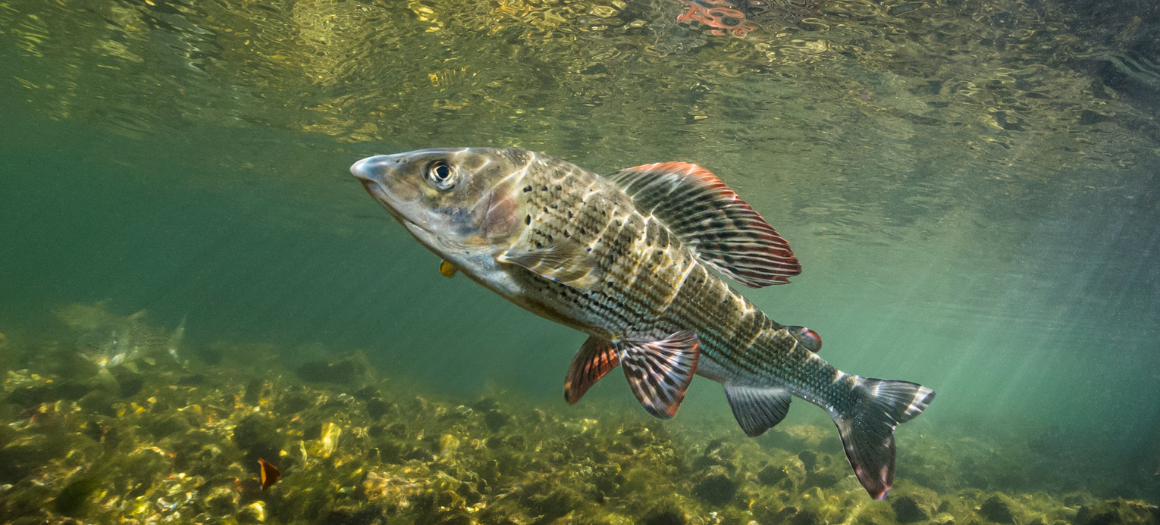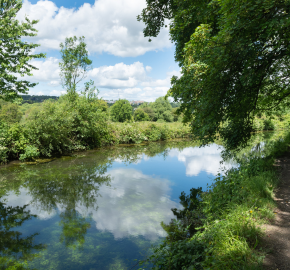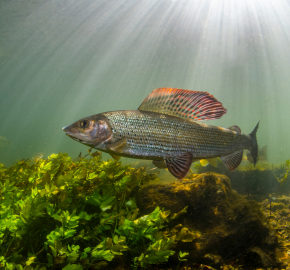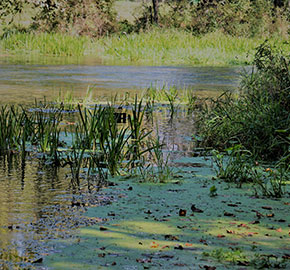What does “protection for chalk streams” in the Levelling-Up Bill amount to?

The Levelling Up and Regeneration Bill is reaching the closing stages of the Parliamentary process. In August, we responded to a suggestion that an amendment to the Bill would improve protection for chalk streams. The Government’s amendments to the Bill have now been published and Guy Linley-Adams takes up the story to explain how chalk streams are no better off than they were before.
The story so far…
There was great excitement in early August that chalk streams were to receive special protection in the Levelling-Up Bill through an amendment promoted by Lord Trenchard.
Was the Government at last taking the chalk stream restoration strategy seriously and injecting real urgency into acting to save our precious natural heritage?
We investigated the reality of what was being proposed. Follow the link below to read our original response.
Peers ride to the rescue of chalk streams? | Wildfish
Our conclusion was that Lord Trenchard’s proposed amendment added nothing to existing protection – save perhaps increasing awareness. However, hopes were buoyed when Lord Benyon promised to come forward with a Government amendment if Lord Trenchard withdrew, which he did.
The Government’s amendment in full: the technical bit
We now have the Government’s promised amendment to clause 157 of the Bill. We include the full details (below) to allow you – if you have read this far – to see how little these amendments achieve.
It is in two parts, in the name of Baroness Scott, Parliamentary Under Secretary of State at the Department for Levelling Up, Housing and Communities.
Clause 157, page 183, line 14, at end insert “(including, amongst other things, the protection of chalk streams from abstraction and pollution)”
Member’s explanatory statement
This amendment fulfils an undertaking made at Report stage and clarifies that the definition of “environmental protection” includes the protection of chalk streams from abstraction and pollution.
Clause 157, page 183, line 23, at end insert “(including, amongst other things, chalk streams)”
Member’s explanatory statement
This amendment fulfils an undertaking made at Report stage and clarifies that the definition of “natural environment” includes chalk streams.
So, all these two do is add the words below in bold to the Bill. Note that the brackets are part of the amendments:
157 Power to specify environmental outcomes.
(1) Regulations made by an appropriate authority under this Part (“EOR regulations”) may specify outcomes relating to environmental protection in the United Kingdom or a relevant offshore area that are to be “specified environmental outcomes” for the purposes of this Part.
(2) “Environmental protection” means—
(a) protection of the natural environment, cultural heritage and the landscape from the effects of human activity, (including, amongst other things, the protection of chalk streams from abstraction and pollution)
(b) protection of people from the effects of human activity on the natural environment, cultural heritage and the landscape;
(c) maintenance, restoration or enhancement of the natural environment, cultural heritage or the landscape;
(d) monitoring, assessing, considering, advising or reporting on anything in paragraphs (a) to (c).
(3) The “natural environment” means—
(a) plants, wild animals and other living organisms,
(b) their habitats, (including, amongst other things, chalk streams)
(c) land (except buildings or other structures), air and water, and the natural systems, cycles and processes through which they interact.
(4) “Cultural heritage” means any building, structure, other feature of the natural or built environment or site, which is of historic, architectural, archaeological or artistic interest.
(5) Before making any EOR regulations which contain provision about what the specified environmental outcomes are to be, an appropriate authority must have regard to-
(a) in the case of regulations made by the Secretary of State acting alone or jointly with a devolved authority or by the Welsh Ministers acting alone, the current environmental improvement plan (within the meaning of Part 1 of the Environment Act 2021),
(b) in the case of regulations made by a Northern Ireland department acting alone, the current environmental improvement plan (within the meaning of Schedule 2 to that Act), or Levelling-up and Regeneration Bill Part 6—Environmental outcomes reports
(c) in the case of regulations made by the Scottish Ministers acting alone, the current environmental policy strategy (within the meaning of section 47 of the UK Withdrawal from the European Union (Continuity) (Scotland) Act 2021) (asp 4).
Our conclusions stand: the amendments do not add any more protection for chalk streams
As we have already stressed, the amendments will not alter how pollution is dealt with at all. There is nothing to shout about.
It is obvious that the bracketed amendments (shown above) do not alter the position of chalk streams and certainly do not add any more protection for chalk streams when compared to the Bill as it stood before these amendments were tabled.
On the subject of sewage, it will remain the responsibility of water companies to provide sewage capacity under the Water Industry Act 1991 (as inadequately implemented and enforced by OFWAT under the 1991 Act and the AMP process).
The amendments will have no retrospective effect on any existing housing, roads, industrial sites, sewage works, and any other developments.
The amendments, and Environmental Outcome Reports (EORs) generally, just relate to new developments. They will have no effect on existing agriculture or any new agricultural activity that falls below EOR thresholds (likely to be almost all agriculture, save new large intensive livestock units).
None of the existing abstraction licences sucking water from chalk streams will be reviewed as a result of the amendments.
For new developments, I would fully expect any EOR to say that the Environment Agency abstraction licensing procedures will deal with abstraction pressures and the capacity of the river or catchment to cope. It is a long-established principle that planning decisions (to which EORs will relate) should not duplicate or usurp decisions that are the remit of other regulatory systems, such as pollution control and the licensing of abstraction which are controlled by the Environment Agency.
The best you could say is that a developer proposing something that might affect a chalk stream – say, a new housing estate in Andover – would be reminded that he or she might have to think about, and deal with chalk streams in the required EOR report. But, any developer bringing forward plans that might affect a chalk stream would have had to have done that anyway, even without these amendments.
The only way to protect chalk streams, and other rivers come to that, is for the Government to apply its existing arsenal of environmental legislation – which sadly lies under-used and under-enforced – to cut pollution and abstraction. Timorous tinkering with the wording of new Bills is not the answer.



